Medi-Cal expansion, dementia trainings and beta-blocker guidelines
Full-scope Medi-Cal expands to ages 26-49
Starting January 1, 2024, full-scope Medi-Cal will be offered for adults ages 26 through 49, regardless of immigration status. This update will make Medi-Cal available to people of all ages who meet other eligibility rules.
Full-scope Medi-Cal services include:
- Medical care.
- Dental care.
- Emergency care.
- Mental health care.
- Family planning.
- Alcohol and drug use treatment.
- Pharmacy services.
- Medical supplies.
For more information on this expansion, please visit the Department of Health Care Services (DHCS) webpage.
We encourage you to contact your assigned Provider Relations Representative if you are able to increase your capacity to help see these members. You can reach out to Provider Relations at 831-430-5504.
Sign up for upcoming dementia trainings
These two dementia trainings offered through Dementia Care Aware are free for providers to attend. CME credits are available.
Complex Care Workshop: Addressing Social Needs in Dementia Care
February 9, 2024 from 9 a.m. to 5 p.m.
Clovis Veterans Memorial District
This free day-long workshop-style conference aims to empower health care teams to:
- Assess for cognitive impairment.
- Identify social needs of people with cognitive impairment.
- Learn skills and resources to manage their complex care.
Participants of the workshop are eligible to receive 3 CME/MOC and CE credits or up to 3 MCLE credits. Find more information on our Provider Webinars and Trainings page.
Dementia Mini-Course: Continuing Dementia Education for Providing Comprehensive Dementia Care
Online training, anytime
This course emphasizes an evidence-based, practical and functional approach to comprehensive care for people living with dementia and their caregivers. The training is free and counts toward CME and CAMFT.
Who should take the training
- Primary care internists.
- Family physicians.
- Geriatricians.
- Nurse practitioners.
- Physician assistants.
- Pharmacists.
- Licensed marriage and family therapists.
- Licensed clinical social workers.
- Licensed professional clinical counselors.
- Licensed educational psychologists.
Topics
- The spectrum of cognitive dysfunction.
- Pharmacological treatment.
- Psychiatric and behavioral symptoms.
- Behavioral treatment of complications.
- Advance directives and ethical issues.
- Safety, function and autonomy.
- Medical billing for dementia care.
- Managing common comorbidities.
- Cultural, ethnic and diversity issues.
- Choosing the best living situation.
- Managing caregiver stress and burnout.
- Effective caregiver support programs.
- Community-based resources.
Get more information and sign up on the Dementia Care Aware website. Note that you will need to create an account on the Dementia Care Aware website in order to access this training.
Beta-blocker use after myocardial infarction (MI) per AHA/ACC guidelines
A recent drug utilization review showed that more than a quarter of our members with a recent history of myocardial infarction (MI) are not taking a beta-blocker. Please review the guidelines below and consider whether beta-blocker therapy may be appropriate for your patients.
Why it matters
According to the National Committee for Quality Assurance, every 34 seconds, someone in the United States has a heart attack. Clinical guidelines recommend taking a beta-blocker after a heart attack to prevent another one from happening. Persistent use of a beta-blocker after a heart attack can improve survival and heart disease outcomes.
Beta-blockers work by lowering the heart rate. This reduces the amount of force on the heart and blood vessels.
Summary of current recommendations for beta-blockers After MI
These recommendations are provided by the American Heart Association (AHA) and the American College of Cardiology (ACC).
- Initiate beta-blockers within the first 24 hours post MI in the absence of contraindications (see below for more information on contraindications).
- Continue beta-blocker therapy after MI.
- Beta-blocker therapy should be continued for 3 years in all patients with normal left ventricular function who have had MI or acute coronary syndrome.
- It is reasonable to continue beta-blockers beyond 3 years in all patients with normal left ventricular function who have had MI or acute coronary syndrome.
Contraindications to beta-blocker therapy
- Cardiogenic shock.
- Active bronchospasm.
- Severe bradycardia.
- Heart block greater than first degree (unless the patient has a permanent pacemaker).
- Patients with overt heart failure.
Patients with treated heart failure or bronchospastic lung disease, peripheral artery disease or diabetes mellitus should receive beta blocker therapy. However, these individuals should be monitored for the development of adverse side effects.


